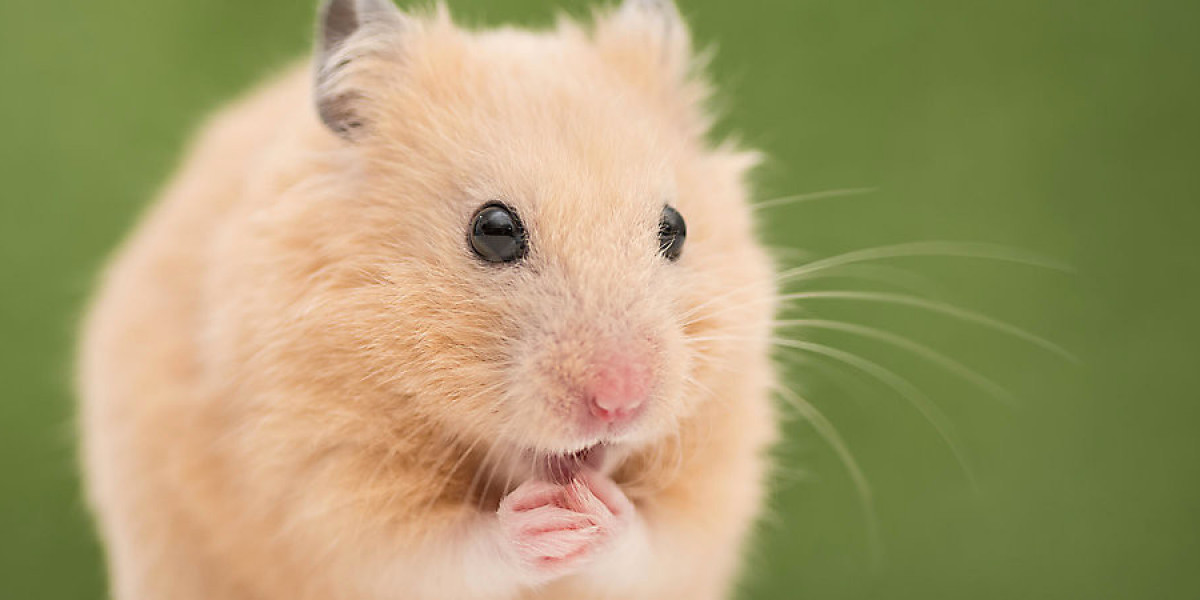Small mammals like hamsters, gerbils, guinea pigs, mice, and rats make excellent pets—especially for those living in small spaces or looking for a lower-maintenance companion. Despite their size, these little critters have specific needs when it comes to housing, nutrition, socialization, and enrichment.
Whether you're a first-time pet parent or considering adding a small mammal to your home, this comprehensive guide will walk you through everything you need to know about caring for your pocket-sized pet. And if you're passionate about small animal care, we’d love for you to Write for us pets at Thepetslover and share your unique experiences with our growing community.
Choosing the Right Habitat
Creating a safe, clean, and stimulating environment is the first step to keeping your small mammal happy.
Hamsters
Cage Size: Minimum of 450 square inches of floor space.
Bedding: Use paper-based or aspen shavings. Avoid cedar or pine they can cause respiratory issues.
Enrichment: Include tunnels, platforms, chew toys, and a solid-surface wheel (not wire).
Mice and Gerbils
Cage Type: Aquariums with mesh lids or multi-level wire cages work well.
Burrowing: Gerbils love to dig, so provide deep bedding (4–6 inches).
Toys: Wooden chews, climbing structures, and toilet paper tubes are excellent for play.
Guinea Pigs
Space: Need more room 7.5 sq ft minimum per pig. C&C cages are popular and easy to customize.
Bedding: Paper or fleece bedding (if cleaned regularly).
Social Needs: Guinea pigs are social and should be kept in pairs or groups.
Rats
Multi-Level Cages: Rats are intelligent and active. Tall cages with hammocks and ramps are ideal.
Hiding Spaces: Always provide hideouts, tunnels, and boxes.
Cleaning: Clean their enclosure 1–2 times per week to prevent odor and illness.
Proper Nutrition for Small Mammals
Each species has different dietary needs. A well-balanced diet is crucial for their longevity and well-being.
Hamsters and Gerbils
Base Diet: Species-specific pelleted food or lab blocks.
Supplements: Occasional treats like carrots, apples (no seeds), cucumber, and cooked egg.
Avoid: Sugary or fatty snacks, chocolate, citrus, and iceberg lettuce.
Guinea Pigs
Essential Nutrient: Require vitamin C daily, as they cannot produce it on their own.
Staples: Timothy hay (available 24/7), vitamin C-fortified pellets, fresh leafy greens like romaine, kale, and bell peppers.
Treats: Small amounts of fruit like strawberries or orange slices.
Mice and Rats
Pellets and Grains: Use commercial mixes for a balanced diet.
Fresh Foods: Fruits, veggies, grains, and lean protein (cooked eggs, chicken).
Treats: Yogurt drops, unsweetened cereal, or dried pasta in moderation.
Always provide fresh water in a bottle or dish, and clean it daily.
Cleaning and Hygiene
A clean habitat is vital to prevent illness and keep your pet comfortable.
Daily Tasks: Remove uneaten food, change soiled bedding in potty areas.
Weekly Cleaning: Replace all bedding, sanitize the enclosure with pet-safe disinfectants, and rinse thoroughly.
Toys and Accessories: Wash and rotate toys to maintain interest and hygiene.
Handling and Bonding
Bonding with small mammals takes patience and gentle interaction.
Tips for Safe Handling:
Wash your hands before and after handling.
Scoop from below never grab from above (it mimics a predator attack).
Use treats to build trust over time.
Allow them to explore a safe space on your lap or a playpen.
For shy pets like hamsters, begin with slow, short sessions and increase gradually.
Each animal has its own personality some love interaction, while others may prefer limited handling. Respect their comfort zones!
Mental and Physical Enrichment
Boredom can lead to destructive behavior or health problems. Keep your pet’s mind and body active:
Exercise Wheels (solid surface) for hamsters, mice, and rats.
Tunnels and Tubes for exploration.
Chew Toys to maintain dental health.
Puzzle Feeders to stimulate problem-solving.
Playtime Outside the Cage (in a secure area) is great for guinea pigs and rats.
Rotate toys weekly to keep things exciting!
Common Health Concerns
Even small pets can suffer from big health issues. Keep an eye out for:
Respiratory Infections: Sneezing, wheezing, or discharge around the nose/eyes.
Dental Problems: Overgrown teeth, drooling, or loss of appetite.
Digestive Issues: Diarrhea, bloating, or changes in stool.
Skin Conditions: Itching, redness, bald spots, or mites.
If you notice any of these symptoms, contact a vet who specializes in exotic or small mammals. Quick intervention is key!
Are Small Mammals Good Pets for Kids?
Yes but with adult supervision.
They help teach responsibility, empathy, and routine care.
Young children should always be supervised when handling small animals to avoid injury (to either party).
Choose a hardier species like guinea pigs or rats for young families they tend to be more tolerant of interaction.
Want to Share Your Small Pet Story?
Have a clever DIY cage setup? A favorite enrichment activity? A rescue story that warms hearts? We’d love to hear it! Write for us pets at Thepetslover and inspire fellow pet lovers with your small mammal experiences. Whether you’re a seasoned owner, vet tech, or just obsessed with rodents we welcome your voice!
Final Thoughts
Caring for hamsters, gerbils, guinea pigs, and other small mammals is both rewarding and fun. With the right habitat, nutrition, social interaction, and enrichment, these tiny creatures can thrive and bring joy to your home.
Remember: their size doesn’t mean their care is simple they rely on us for everything. By staying informed, observant, and attentive, you’ll create a loving environment where your little friends can flourish.
Because at the end of the day, big or small, all pets deserve the best.







